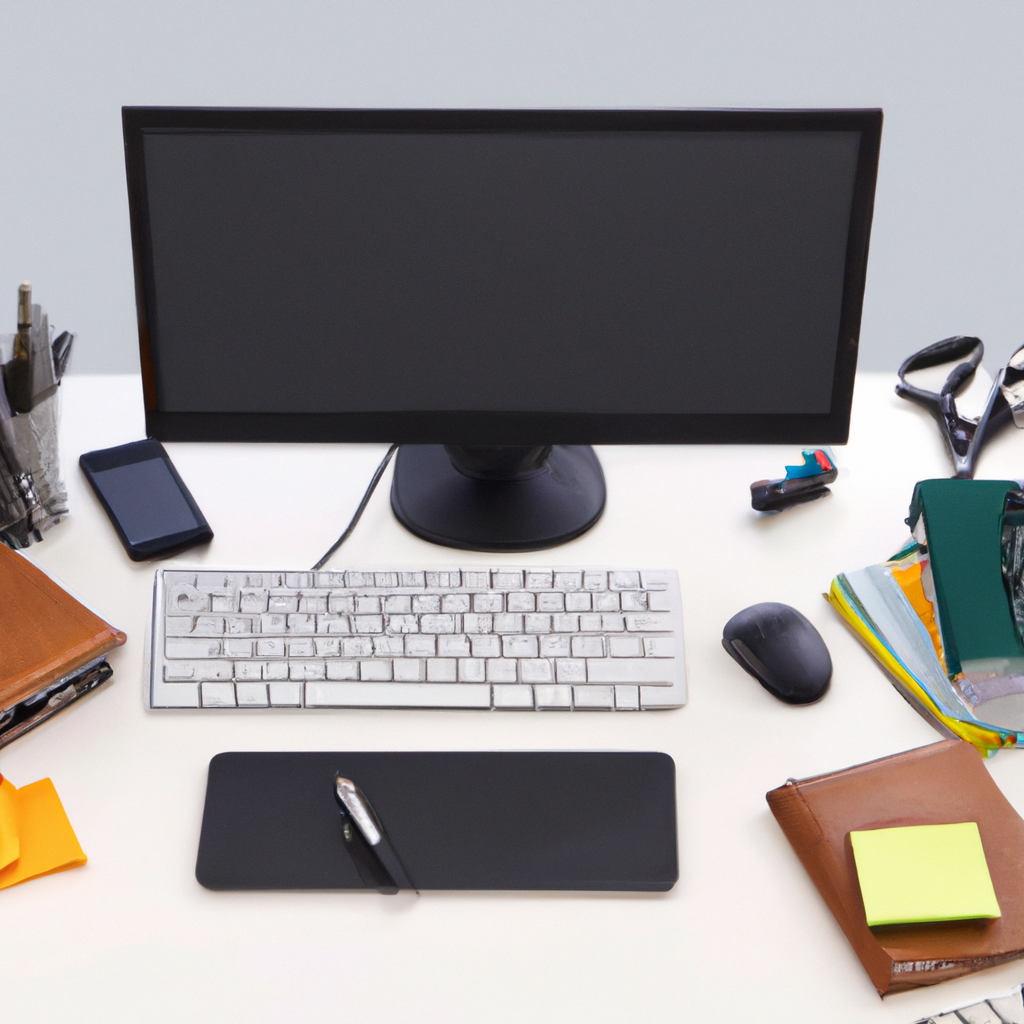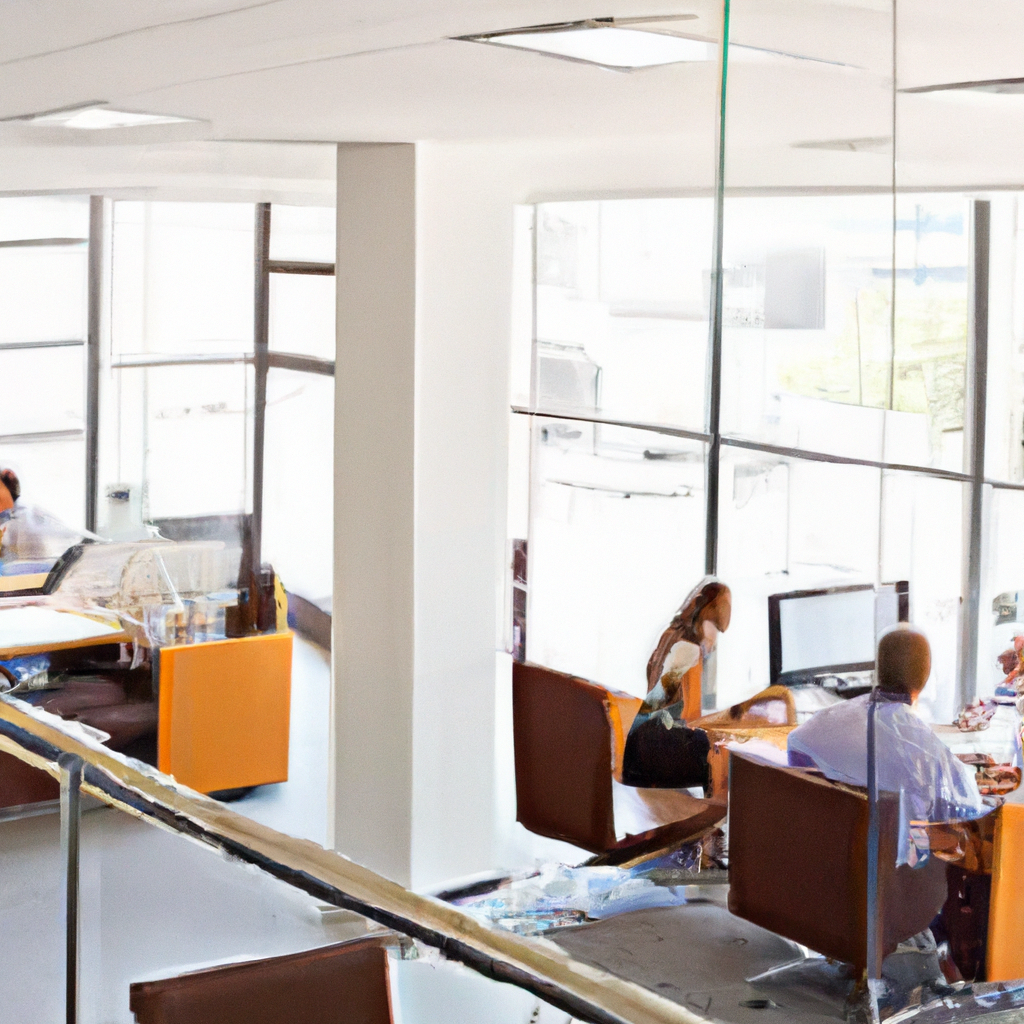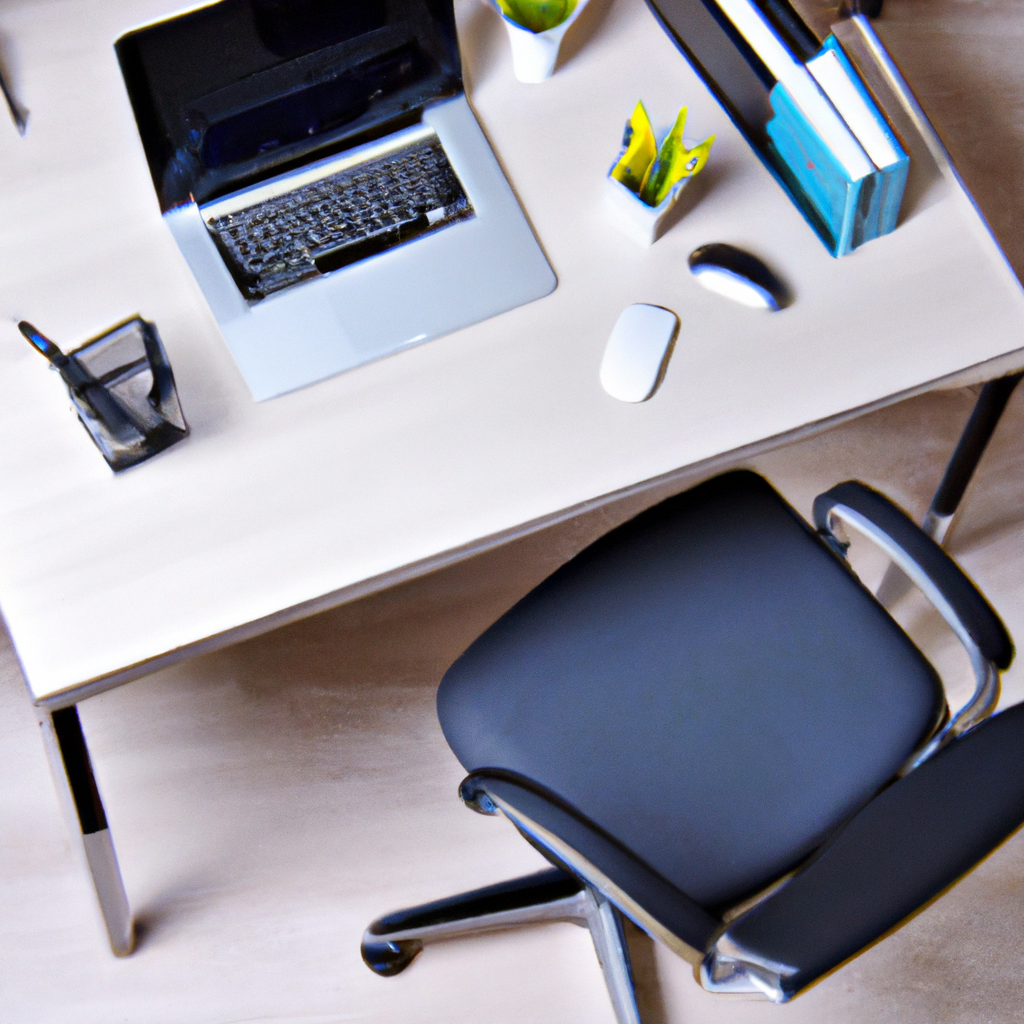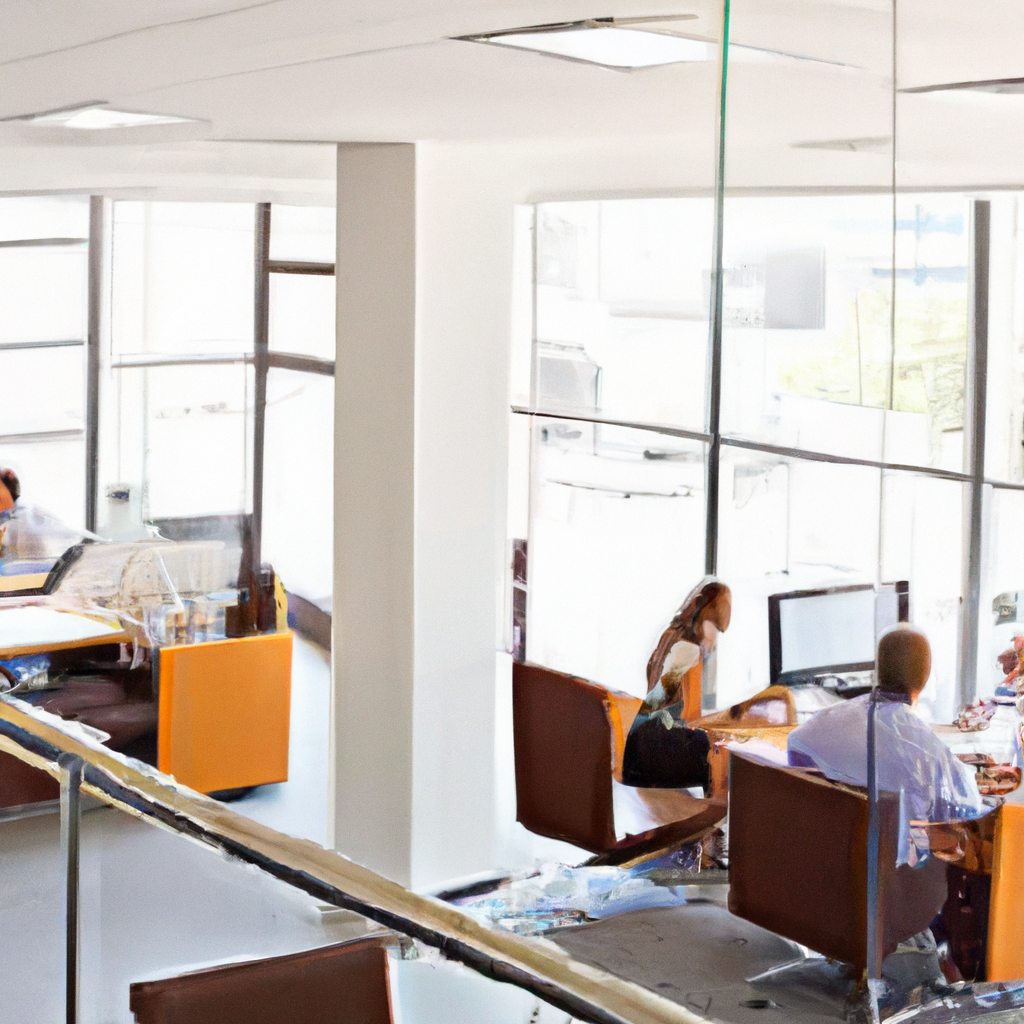Imagine walking into a clean and pristine office every morning, where everything is organized, surfaces are spotless, and the air smells fresh. Sounds like a dream, right? Well, this dream can become a reality with the importance of daily office cleaning. From reducing the spread of germs to boosting productivity, a clean workplace not only creates a pleasant environment but also contributes to the overall success of your business. In this article, we will explore why daily office cleaning is essential and how it can benefit both employees and employers alike. Get ready to discover the impact that a tidy workspace can have on your workday!

Definition of Daily Office Cleaning
Understanding the concept
Daily office cleaning refers to the regular cleaning and maintenance of an office space to ensure a clean, organized, and hygienic environment for employees, clients, and visitors. It involves thorough cleaning of various areas within the office, including workspaces, restrooms, common areas, and shared equipment.
Scope of daily office cleaning
The scope of daily office cleaning encompasses a wide range of tasks and areas that need attention to maintain a clean and healthy workspace. This includes dusting and wiping down surfaces, vacuuming or mopping floors, emptying trash bins, sanitizing restrooms, cleaning shared equipment, and ensuring overall cleanliness throughout the office. Daily office cleaning aims to promote a productive work environment, minimize the spread of germs and illnesses, and enhance the overall aesthetics of the office.
Benefits of Daily Office Cleaning
Maintaining a clean and healthy environment
One of the primary benefits of daily office cleaning is the maintenance of a clean and healthy environment for everyone in the office. Regular cleaning helps eliminate dust, allergens, and pathogens that can negatively impact indoor air quality and cause respiratory issues. By keeping surfaces, floors, and restrooms clean, daily office cleaning reduces the risk of illnesses and promotes the well-being of employees.
Enhancing employee productivity
A clean and organized office space has a direct impact on employee productivity. When employees have a clutter-free workspace and can easily find what they need, they can focus better on their tasks and work efficiently. Daily office cleaning ensures that desks, filing cabinets, and common areas are free from clutter, allowing employees to work in a clean and distraction-free environment.
Reducing the spread of germs and illnesses
Offices are breeding grounds for germs and bacteria, especially high-touch surfaces such as doorknobs, light switches, and shared equipment. Daily office cleaning includes regular sanitization of these surfaces, reducing the risk of cross-contamination and the spread of illnesses among employees. By promoting good hygiene practices and maintaining cleanliness, daily office cleaning helps create a healthier work environment.
Improving office aesthetics
A clean and well-maintained office space creates a positive impression on clients, visitors, and employees. Daily office cleaning involves cleaning windows, dusting surfaces, and vacuuming carpets, which improves the overall aesthetics of the office. A visually appealing workspace not only enhances the professional image of the company but also instills a sense of pride and satisfaction in employees.
Extending the lifespan of office equipment
Office equipment such as computers, printers, and furniture represent significant investments for any company. Daily office cleaning helps prolong the lifespan of these items by removing dust and dirt that can accumulate over time. Regular cleaning and maintenance prevent the buildup of debris, which can cause malfunctions and premature wear and tear. By protecting office equipment through cleaning, companies can save on repair and replacement costs in the long run.

Commonly Neglected Areas in Office Cleaning
Office kitchen and breakroom
The office kitchen and breakroom are often hotspots for spills, food residue, and buildup of bacteria. These areas require daily cleaning to maintain a hygienic environment. This includes wiping down countertops, sanitizing cutting boards and utensils, cleaning appliances, and ensuring the proper storage and disposal of food.
Office restrooms
Restrooms are another critical area that often gets neglected in daily office cleaning. Dirty restrooms can lead to unpleasant odors, the presence of germs, and an overall negative impression. Proper restroom cleaning involves disinfecting toilets, sinks, and handles, restocking supplies such as soap and paper towels, and maintaining cleanliness throughout the day.
Shared equipment
Shared equipment like photocopiers, printers, and shared keyboards are prone to harboring germs and bacteria from multiple users. Regular cleaning and sanitization of these items reduce the risk of spreading infections. Cleaning shared equipment should include wiping down surfaces with disinfectant, cleaning keyboards with compressed air or disinfecting wipes, and periodically deep cleaning devices to maintain optimal performance.
Flooring and carpets
Flooring and carpets can accumulate dust, dirt, and debris over time, affecting indoor air quality and overall cleanliness. Regular vacuuming and mopping of hard floors, along with deep cleaning of carpets, are essential to maintain a hygienic environment. Stains and spills should be promptly addressed to prevent permanent damage and odors.
Air vents and HVAC system
The air vents and HVAC (heating, ventilation, and air conditioning) system in an office play a vital role in maintaining indoor air quality. However, they can also accumulate dust and allergens if not cleaned regularly. Professional cleaning services can provide specialized equipment and expertise to clean and maintain air vents and HVAC systems, ensuring optimal air circulation and quality.
Personal workspaces
While it is the responsibility of employees to keep their workspaces clean and tidy, daily office cleaning should also include periodic deep cleaning to maintain a high standard of cleanliness. This can involve dusting and wiping down surfaces, organizing desktop items, and cleaning computer screens and keyboards. Encouraging employees to keep their personal workspaces clean helps create a culture of cleanliness in the office.
Daily Office Cleaning Best Practices
Create a cleaning checklist
To ensure thorough and consistent cleaning, it is important to create a detailed cleaning checklist. This checklist should outline all the areas and tasks that need to be cleaned on a daily basis. Having a checklist helps ensure that no areas or tasks are overlooked during the cleaning process.
Establish a cleaning schedule
A cleaning schedule should be established to ensure that cleaning tasks are completed regularly and efficiently. Depending on the size of the office and the number of employees, the cleaning schedule may vary. It is important to determine the frequency of cleaning tasks for each area of the office to ensure all areas are adequately cleaned.
Assign responsibilities
Clearly define the responsibilities of cleaning tasks and assign them to specific individuals or a professional cleaning service. This ensures accountability and allows for efficient completion of tasks. By clearly communicating and delegating cleaning responsibilities, everyone in the office understands their role in maintaining cleanliness.
Use appropriate cleaning products
Using appropriate cleaning products is essential to effectively clean and disinfect different surfaces in the office. Different surfaces may require specific cleaning agents or disinfectants to ensure proper sanitation. It is important to read and follow the instructions on cleaning product labels to ensure safe and effective use.
Implement proper waste management
Proper waste management is crucial for maintaining cleanliness and hygiene in the office. This includes regular emptying of trash bins, using appropriate waste disposal methods, and promoting recycling. Clearly labeled bins for different types of waste, such as recycling, general waste, and electronic waste, help encourage proper waste management practices.
Regularly sanitize high-touch surfaces
High-touch surfaces such as doorknobs, light switches, elevator buttons, and shared equipment should be regularly sanitized to reduce the spread of germs. These surfaces are frequently touched by multiple people, making them potential hotspots for bacteria and viruses. Regular sanitization using appropriate disinfectants helps minimize the risk of cross-contamination.
Maintain clean and organized storage areas
Storage areas such as closets, cabinets, and supply rooms should be kept clean and organized. Regularly decluttering and organizing these spaces makes it easier to access supplies and prevents the accumulation of unnecessary items. Implementing a system for maintaining clean and organized storage areas reduces the risk of neglect and promotes efficiency.

Understanding the Role of Professional Cleaning Services
Benefits of hiring professional cleaners
Hiring professional cleaning services brings numerous benefits to an office environment. Professionals have the expertise and equipment necessary to deliver thorough and efficient cleaning. They can handle large-scale cleaning tasks effectively, ensuring that all areas are properly cleaned and maintained.
Expertise and specialized equipment
Professional cleaners have the knowledge and experience to tackle various cleaning challenges. They are trained in using specialized equipment, techniques, and cleaning products to achieve optimal results. Hiring professionals ensures that the cleaning process is efficient, effective, and tailored to the specific needs of the office.
Ensuring compliance with health and safety regulations
Professional cleaners are familiar with health and safety regulations related to cleaning practices. They ensure that the office environment meets the required standards and guidelines for cleanliness and hygiene. By hiring professionals, offices can avoid potential legal issues and maintain a safe and healthy workplace for employees.
Customized cleaning plans
Professional cleaning services can develop customized cleaning plans based on the specific needs and preferences of the office. They can assess the size of the office, the number of employees, and the specific cleaning requirements to create a comprehensive cleaning plan. Customized cleaning plans ensure that all areas and tasks are addressed, yielding optimal results.
Cost-effectiveness
Contrary to popular belief, hiring professional cleaning services can be cost-effective in the long run. By outsourcing cleaning tasks, office staff can focus on their core responsibilities and improve productivity. Additionally, professional cleaners ensure that cleaning is done efficiently and prevent damage to office equipment and furniture, reducing potential repair or replacement costs.
Impacts of Neglecting Daily Office Cleaning
Increased employee absenteeism
Neglecting daily office cleaning can lead to increased employee absenteeism. A dirty and unsanitary workspace can expose employees to harmful germs and bacteria, increasing the likelihood of illnesses. When employees fall sick frequently due to poor office cleanliness, absenteeism rates rise, resulting in reduced productivity and increased costs for the company.
Decline in workplace morale
A neglected and unclean office space can significantly impact workplace morale. Employees may feel demotivated and unappreciated when their workspace is untidy or dirty. A decline in workplace morale can lead to decreased job satisfaction, lower productivity, and even increased turnover rates. Maintaining a clean and organized office fosters a positive work environment and boosts employee morale.
Deterioration of indoor air quality
Neglecting daily office cleaning can result in poor indoor air quality. Accumulated dust, allergens, and pollutants can circulate in the air, affecting the respiratory health of employees. Poor air quality can lead to symptoms such as allergies, asthma, and other respiratory issues, impacting the overall well-being of the workforce.
Potential damage to office furniture and equipment
Neglecting regular cleaning and maintenance can lead to potential damage to office furniture and equipment. Dust, dirt, and spills can accumulate over time, causing stains, discoloration, and even functionality issues. The cost of repairing or replacing damaged furniture and equipment can be significant, making regular cleaning a cost-effective preventive measure.
Negative impact on client perceptions
The cleanliness and hygiene of an office space directly impact client perceptions. A neglected and unclean office can create a negative impression of the company’s professionalism and attention to detail. Clients may question the company’s ability to meet their needs and may even reconsider doing business with them. Maintaining a clean and well-organized office space is crucial for building strong client relationships and maintaining a positive brand image.

Implementing Sustainable Office Cleaning Practices
Choosing eco-friendly cleaning products
Implementing sustainable office cleaning practices involves using eco-friendly cleaning products. Opting for environmentally friendly cleaning agents reduces the use of harsh chemicals that can be harmful to both human health and the environment. Choosing products with biodegradable and non-toxic ingredients helps minimize the ecological footprint of daily office cleaning.
Reducing water consumption
Conserving water is an important aspect of sustainable office cleaning. Using water-efficient equipment, such as low-flow faucets and toilets, helps reduce water consumption. Employing proper cleaning techniques that minimize water wastage, such as using microfiber cloths that require less water, also contribute to sustainable water usage.
Proper waste disposal and recycling
Adopting sustainable office cleaning practices requires implementing proper waste disposal and recycling methods. Clearly labeled recycling bins help encourage employees to separate recyclable items from general waste. Additionally, establishing partnerships with recycling facilities and ensuring proper disposal of hazardous waste are essential steps towards sustainable waste management.
Energy-efficient cleaning equipment
Energy-efficient cleaning equipment, such as vacuum cleaners, can help minimize energy consumption during cleaning processes. Utilizing equipment with energy-saving features reduces the office’s overall energy usage. Additionally, implementing proper equipment maintenance, such as regularly cleaning filters, helps ensure optimal performance and energy efficiency.
Encouraging employee participation
Promoting sustainable office cleaning practices requires employee participation and awareness. Educating employees about the importance of sustainability, providing training on proper waste disposal and recycling, and encouraging responsible consumption of cleaning supplies can foster a culture of sustainability within the office. By involving employees in sustainability initiatives, companies can create a collective effort towards a cleaner and greener environment.
Tips for Hiring a Professional Cleaning Service
Define your cleaning requirements
Before hiring a professional cleaning service, it is important to define the specific cleaning requirements of the office. This includes determining the size of the office space, the frequency of cleaning, and any specific cleaning tasks or areas that need attention. Clear communication of these requirements helps ensure that the cleaning service can meet the office’s needs.
Research and evaluate cleaning companies
Researching and evaluating different cleaning companies is crucial to find a reputable and reliable service provider. Look for companies with positive reviews and a proven track record in the industry. Consider their experience, expertise, and customer testimonials to make an informed decision.
Check for proper licenses and certifications
Ensure that the cleaning company has the necessary licenses and certifications to provide professional cleaning services. This ensures that they adhere to industry standards and regulations. Request proof of insurance to safeguard against any potential damages or liabilities that may occur during the cleaning process.
Request references and read reviews
Ask for references from the cleaning company and reach out to previous or existing clients to inquire about their experience. Reading online reviews and testimonials can also provide insight into the quality and reliability of the cleaning service. Feedback from other customers can help guide the decision-making process.
Evaluate cost and contract terms
Compare the cost and contract terms offered by different cleaning companies. Evaluate the services included in the pricing, such as the frequency of cleaning visits and any additional charges for specialized services. Consider the company’s flexibility in accommodating changes to the cleaning schedule or tasks as needed.
Creating a Culture of Cleanliness in the Office
Educating employees on cleaning protocols
Educating employees about cleaning protocols helps create a culture of cleanliness and hygiene in the office. Provide clear guidelines on proper cleaning practices, such as wiping down surfaces, using sanitizers, and properly disposing of waste. Regularly communicate the importance of cleanliness to employees to reinforce a clean and healthy work environment.
Encouraging personal hygiene practices
Promoting personal hygiene practices is vital for maintaining cleanliness and preventing the spread of illnesses in the office. Encourage employees to wash their hands regularly, use hand sanitizers, and follow proper hygiene etiquette. Display signage reminding employees to practice good hygiene in common areas, such as restrooms and kitchen spaces.
Providing necessary cleaning supplies
Ensure that the office is well-stocked with the necessary cleaning supplies for employees to maintain cleanliness. This includes providing disinfectant wipes, hand sanitizers, and cleaning sprays throughout the office. Properly label and place these supplies in easily accessible areas to encourage employees to utilize them.
Promoting a clean desk policy
Implementing a clean desk policy helps maintain a clutter-free and organized workspace. Encourage employees to declutter their desks, file documents appropriately, and regularly clean their personal workspaces. Promote the importance of a clean desk not only for personal efficiency but also for maintaining overall cleanliness in the office.
Rewarding cleanliness and tidiness
Recognize and reward employees who consistently maintain cleanliness and tidiness in the office. This can be done through acknowledgments, incentives, or an employee of the month program. By highlighting the importance of cleanliness and acknowledging those who contribute to a clean workspace, employees are motivated to uphold cleanliness standards.
Conclusion
Daily office cleaning plays a crucial role in maintaining a clean, healthy, and productive work environment. By understanding the concept, benefits, and impacts of daily office cleaning, companies can take a proactive approach in implementing best practices. Hiring professional cleaning services, prioritizing neglected areas, and adopting sustainable practices are key steps towards achieving cleanliness in the office. By fostering a culture of cleanliness and promoting employee participation, companies can create a positive working environment and enhance their reputation. With a proactive mindset and commitment to cleanliness, offices can reap the numerous benefits of daily office cleaning. So, start implementing these practices today and enjoy a clean and thriving workspace.
